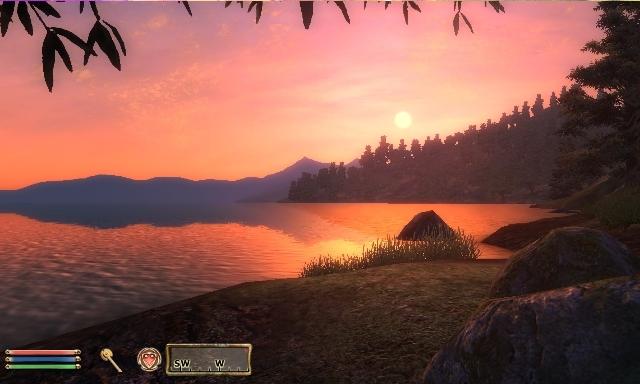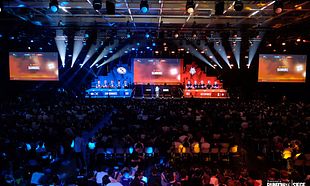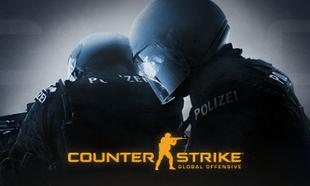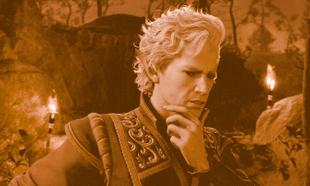Each week, The Replay takes a classic game from the '80s, '90s and '00s and examines them in greater detail, exploring their impact, contemporary reviews, and why we're still playing them to this day. This week, it's 2006's RPG behemoth, 'The Elder Scrolls IV: Oblivion'...
The recurring joke about 'Skyrim', the follow-up to 'Oblivion', is that Bethesda were going out of their way to push it on to every possible gaming platform - whether it was re-releasing it on the Xbox One, the Nintendo Switch, or hoaxes about it being able to play it on mobile gaming. For all of the praise that's heaped upon 'Skyrim', there's something curious about how 'Oblivion' is now treated some twelve years on.
When you go back and play 'Oblivion' now, the pace of play is so much more stately and almost meditative in its execution. The beautiful, lush landscapes of Cyrodiil feel unrealistic in comparison with, say, 'Skyrim' or even 'Breath of the Wild', but there's a richness to it all that still holds up. The trees, the grass; it may look naff but walking over the plains or galloping a horse vertically up the mountains is still as satisfying and enjoyable as ever.
Not only that, the voice cast is as impressive then as it was now. Sean Bean and Patrick Stewart may be clearly phoning in the performance, but the very presence of their voices adds a weight to it all that 'Skyrim' doesn't have. It's not that the names weren't any weightier in 'Skyrim', it's that in 2006 on a console game hearing Captain Jean-Luc Picard or Boromir of Gondor was a surprise. Not only that, most games almost advertised on the strength of the cast they'd lined up for it. Here, it was merely one part in a much wider machine.
By today's standards, there's no denying that some of the features in 'Oblivion' are decidedly quaint. The armour system, the wear-and-tear of weapons, even the actual levelling system are now par for the course in just about every RPG out there. In fact, they were a regular feature in most PC RPGs already but never before had it been ported so successfully to consoles. In fact, quite a number of the features in 'Oblivion' were common enough to PC RPGs.
This aside, the storyline in 'Oblivion' intriguingly puts you not as some chosen warrior, or even a highly-skilled one at that, but opens with you in prison, chained up for an undisclosed crime, and essentially freed when the Emperor - Patrick Stewart, no less - is making his escape through the underground catacombs. It's not until you reach Kvatch and fight off a horde - about a quarter of the way into the main storyline - that you're referred to by NPCs as "a hero".
As much as any game before or since, 'Oblivion' made the player define the character. For example, 'Skyrim' specifically placed you as Dragonborn, descended from a long-dead lineage of warriors. 'Morrowind', meanwhile, revealed that the player as the Nerevarine, a reincarnation in a religious prophecy that plays a crucial role in the game. 'Oblivion', compared to other games where you create the character, goes out of its way to allow your actions to define your legacy, rather than your actions being part of some kind of prophecy or destiny.
More to the point, 'Oblivion' almost specifically wants you to be part of the world in an anonymous way. You can walk from village to village, wander through ruins and forests all without anyone bothering you. There's a real sense of peace in 'Oblivion', even after you've completed the main storyline, that feels all the more satisfying when you compare it with 'Skyrim'.
It's not that 'Skyrim' is better than 'Oblivion', or vice versa. Rather, 'Oblivion' feels much more holistic in its approach, offering a wide story and an expansive area to play with it, that feels wide, open and almost ethereal when compared to the somewhat crowded landscapes we're now used to in role-playing games.
More than any other RPG of its kind, 'Oblivion' rewards a sense of wandering and the player setting the terms of how the game plays. You're not forced onto rails, and there's no pressure to get back to the main storyline. That kind of tranquil, slow gameplay is sorely lacking from AAA RPGs nowadays.
It feels almost cliche to say it, but they just don't make games like this anymore.









































































